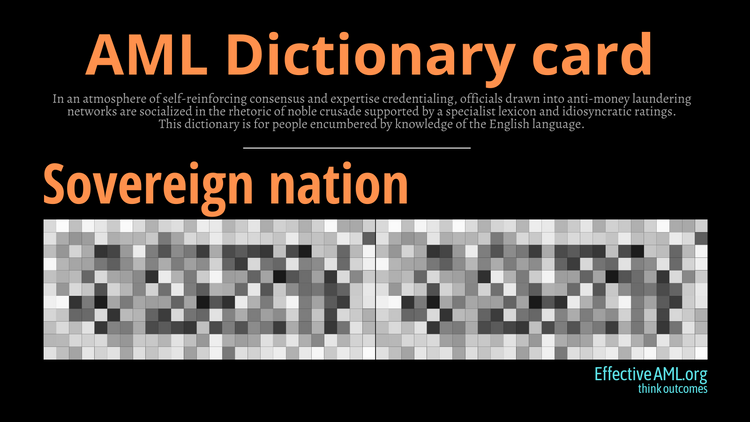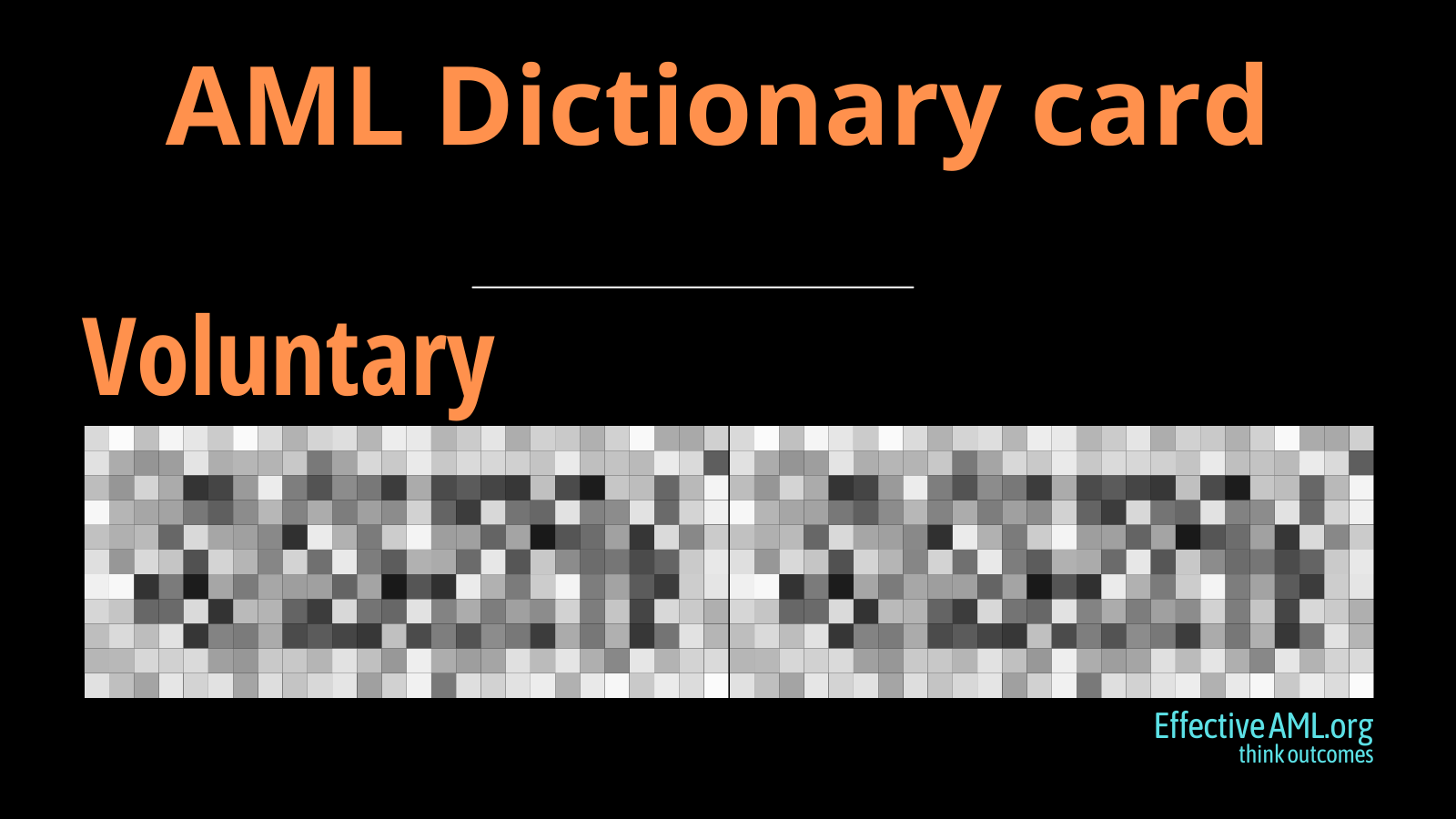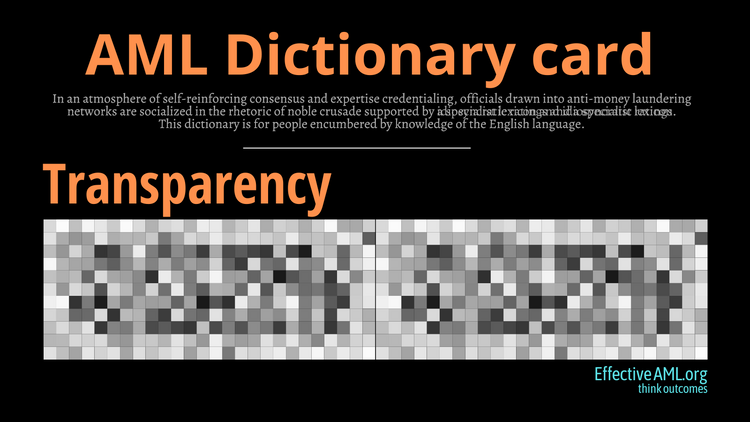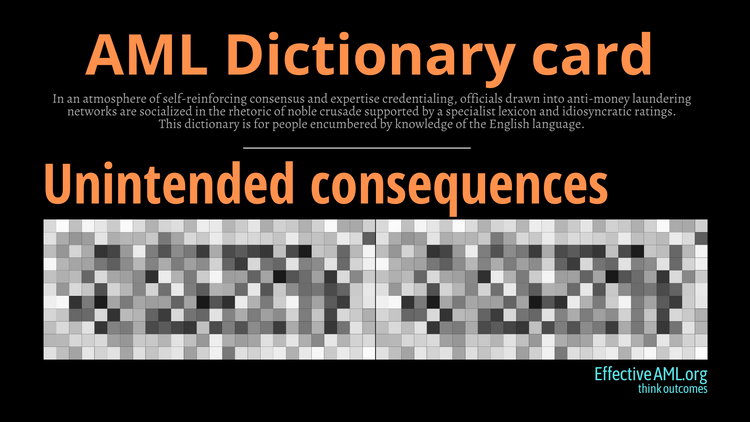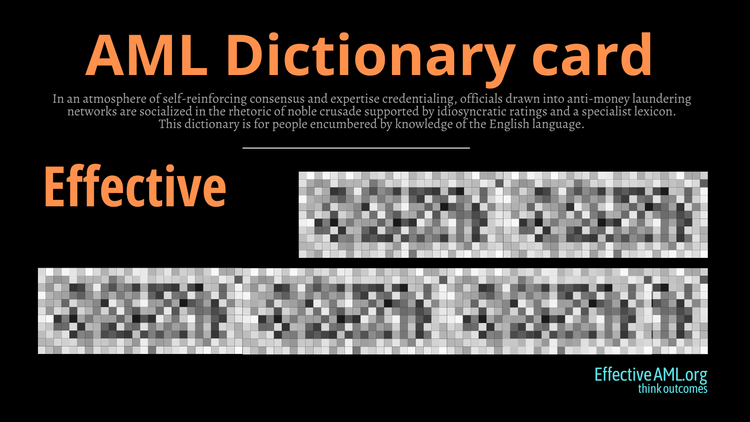The three stages of AML failure
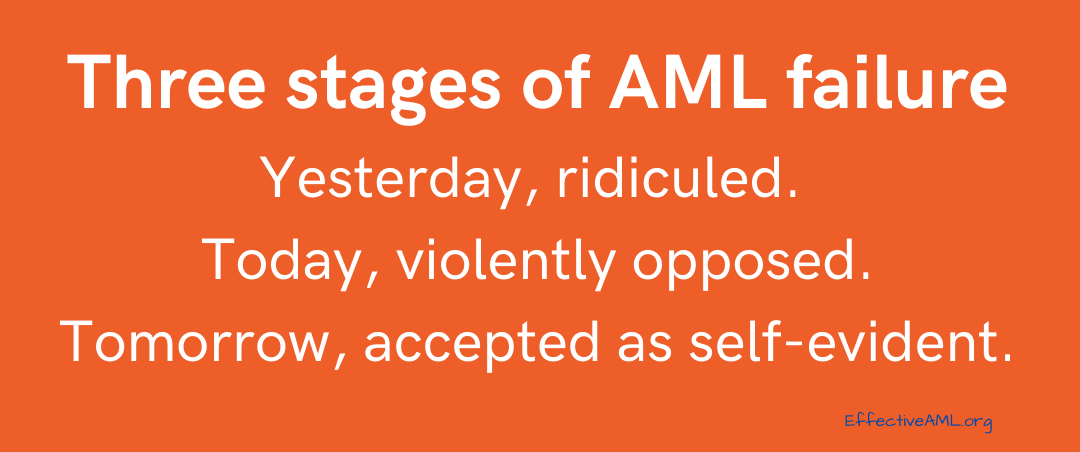
In both Schopenhauer’s populist “quote” and the less optimistic observation in his written works, the third stage coincides with the blindingly obvious. In either case, only when the evident failure of the modern anti-money laundering movement is accepted can it begin to correct its tragic course diversion, finally enable the outcomes intended by G7 leaders, and seriously start to slash crime, harm, regulatory risk, and compliance costs.
A popular adage attributed to German philosopher Arthur Schopenhauer – on fridge magnets, motivational posters, and countless books, articles, and conference papers – is widely known and frequently quoted:
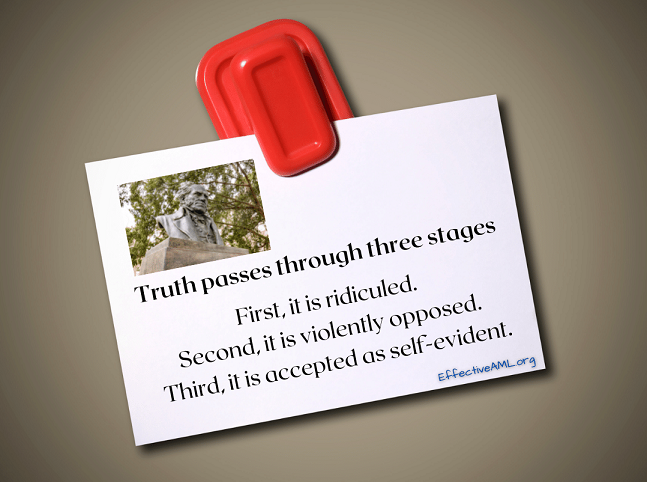
However, like scores of “knowns” in anti-money laundering discourse (like the Al Capone origin story, the “IMF estimate” of laundering at 2-5% of global GDP, self-declared effectiveness, and the presumed evidence-based nature of anti-money laundering policy making and regulations), perceptions of truth sometimes diverge from reality.
After all, with common mental shortcuts dubbed “fast” and “slow” thinking, if something sounds right, and we can readily think of examples, it is easy to accept. We can believe that the quote widely attributed to Schopenhauer is, in fact, what Schopenhauer said or wrote – without troubling to ask a few questions to unpick beliefs and assumptions to find some underlying truth supported by objective, measurable evidence.
Schopenhauer’s adage fits the bill nicely. It sounds reasonable and illustrations are plentiful. For example:

